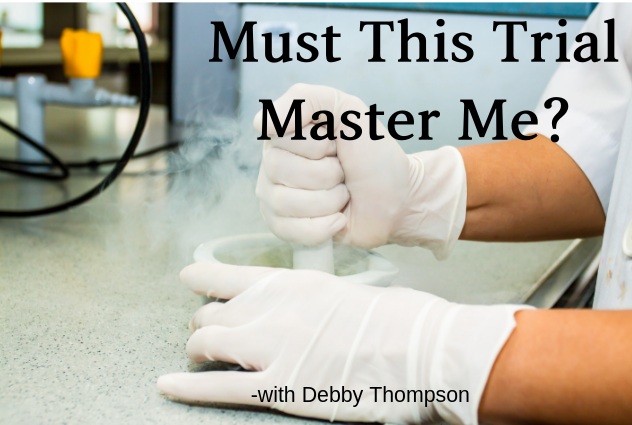The raw reality of the afternoon phone call left me feeling crummy. Not knowing what to do in the aftermath, I knelt in one of my favorite spots to pray. Bowing before my blue wingback chair, I talked the matter over with my heavenly Father. Soon after, I lifted my pen. One sentence ended, and another started as the words poured forth onto the pages of my journal.
Gently then, as only He can do, the Holy Spirit took over and guided me to my desired haven. After a lengthy season of quiet contemplation, stability emerged—not in absence of the trial—but in the reality that He was now in control.
I invite you to join me in my living room and observe how The Lord led through this painful maze. His schooling for me embraces three realities:
Let it
With my emotional boat taking water, I revisited the phrase Let it.
The Book of James contains this often-overlooked concept, which offers profound wisdom in the how-to for holding on in the turbulent sea of a trial. He admonishes us to stop fighting (wrestling) the trial and Let it; Let the process produce a godly result.
“Count it all joy, my brothers, when you meet trials of various kinds, for you know that the testing of your faith produces steadfastness. And let steadfastness have its full effect, that you may be perfect and complete, lacking in nothing” (James 1:2-4 ESV). When we release the trial into the Hands of Providence, He receives it and somehow uses it for His glory, our good, and our growth.
So Let it; let the trial do the work He intends, which is refining our character and molding us more into the Image of His Son.
Leave it
Then, Leave it with Him. Leave it. My tendency is to give the trial to God, and then grab it back, mentally, that is.
You and I suffer the temptation to rethink, rehearse, reword, and recreate all angles and aspects of said trial. In this stew, we become victims all over again of our own thought pattern, and we find ourselves, once more, chained like a prisoner to the very matter we want to submit to God’s control.
The only way to break this destructive cycle is to Leave it. Leave it with Him. The pure delight of peace and confidence comes—and stays—when the trial remains in His Hands, not mine. Indeed, the re-offering must transpire, because we are human. But each time, yet again, Leave it I must.
Live
The joy of living a full and abundant life does not depend on my trial being resolved! No. The enemy wants me to believe this, but such deceit rises as a lie from his pit.
On the contrary, The Word of God tells me, In Thy presence is fullness of joy (Psalm 16:11). His presence is with me and His presence provides my joy, not the resolution of my trial. Sure, feel-goods—spiritual endorphins—are replenished when the trial eventually abates, but His anchor of joy remains fixed throughout the process.
So, from my wingback chair to my walk back into life, I share my conviction of Let it, Leave it, and then Live. No, this trial does not have to master me, or you.
Living With Eternal Intentionality®
When did you last feel that a trial threatened to sideline you?
How did you manage to move forward, in spite of its painful reality?
Which part of this process (Let it, Leave it, Live) seems most helpful to you?














